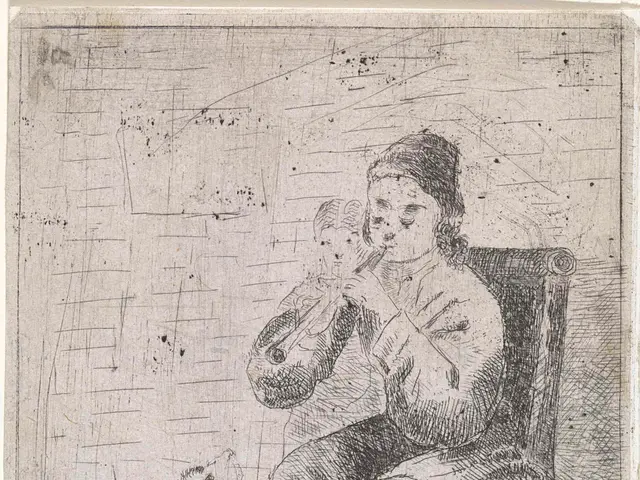Establishing the impact of celebrated filmmakers on contemporary filmmaking.
Transforming the Face of Film into a Universal Art: The Pivotal Roles of Iconic Directors
Filmmaking has always been a powerful medium for storytelling, allowing us to connect on a deeply emotional level. Through their groundbreaking works, influential directors have raised the artistic bar and played an essential role in shaping the future of cinema.
Directors like Steven Spielberg and Martin Scorsese have left an indelible mark on film history by reinventing genres and pushing the boundaries of storytelling. Spielberg, with iconic films such as "E.T." and "Jurassic Park," has showcased a unique ability to fuse thrilling action with emotional depth that transcends cultural barriers. Meanwhile, Scorsese, through landmark films like "Taxi Driver" and "Goodfellas," delves deep into the human psyche, capturing complex themes of crime and redemption.
It's important to also remember the pioneering work done by filmmakers such as Fritz Lang and François Truffaut. Lang's "Metropolis" stands out as a landmark film, which illuminated the darker aspects of society and captivated audiences with its innovative use of visual storytelling techniques. French New Wave icon Truffaut, famous for "The 400 Blows," gave us unprecedented intimacy and realism, offering fresh ways of sharing personal experiences within the confines of the cinematic medium.
The global impact of directors doesn't end there, as illustrated by the likes of Raj Kapoor and Melvin Van Peebles. Raj Kapoor, an Indian cinema legend, introduced captivating, colorful tales of romance with epic qualities. Melvin Van Peebles, on the other hand, embraced the blaxploitation genre, providing a voice for black Americans that resonated globally. His films dared to tackle themes often overlooked in mainstream cinema.
In today's dynamic film landscape, we see new talents rising to the occasion, pushing the envelope and expanding the limits of storytelling. Pedro Almodóvar and Emilio Fernández offer a glimpse of cultural narratives from Spain and Mexico, while Mira Nair and Spike Lee continue to pave the way by challenging social norms and creating memorable work that resonates universally.
The ongoing evolution of cinematic storytelling can also be seen in the unique styles of modern wonders like Sofia Coppola and Agnès Varda. Coppola captures the essence of youth and femininity in a dreamy style, while Varda's experimental approach to filmmaking offers deeply personal and heartfelt stories.
With the rise of directors such as Jordan Peele and Greta Gerwig, the future of cinema looks bright and full of promise. These visionaries create thought-provoking, innovative work that addresses social issues and experiments with storytelling formats. The world of cinema will undoubtedly continue to grow and evolve, driven by passionate and creative individuals on the search for artistic and emotional depth.
[1] Kaufman, N. (2020). "A Brief History of the Master Directors of Cinema." IMDb. Retrieved from https://www.imdb.com/list/ls074074960/[2] Tagliamonte, F. (2021). "The 100 Greatest Films of the 21st Century." Film Comment. Retrieved from https://www.filmcomment.com/lists/100-greatest-films-of-the-21st-century/[3] Van Gelder, L. (2018). "Federico Fellini's 8-1/2 Sets Anniversary as a Benchmark." The New York Times. Retrieved from https://www.nytimes.com/2018/07/09/movies/federico-fellini-812-sets-anniversary.html[4] Grant, P. (2021). "The 100 Best Films of the 21st Century, According to Sight & Sound." IndieWire. Retrieved from https://www.indiewire.com/gallery/best-films-of-the-21st-century-sight-and-sound-1234534531/[5] Bradsher, K. (2015). "Joshua Oppenheimer Uncovers Dark Indonesia Secrets in 'The Act of Killing.'" The New York Times. Retrieved from https://www.nytimes.com/2015/10/18/movies/joshua-oppenheimers-the-act-of-killing-takes-critics-and-audiences-by-storm.html
Cinema continues to evolve with the emergence of innovative directors, such as Jordan Peele and Greta Gerwig, who create impactful work that explores social issues and pushes the boundaries of traditional storytelling formats, as seen in "Get Out" and "Lady Bird". In this digital age of movies-and-tv, entertainment transcends cultural barriers, embodying the universal spirit of cinema, much like the groundbreaking works of iconic directors like Steven Spielberg and Martin Scorsese.








